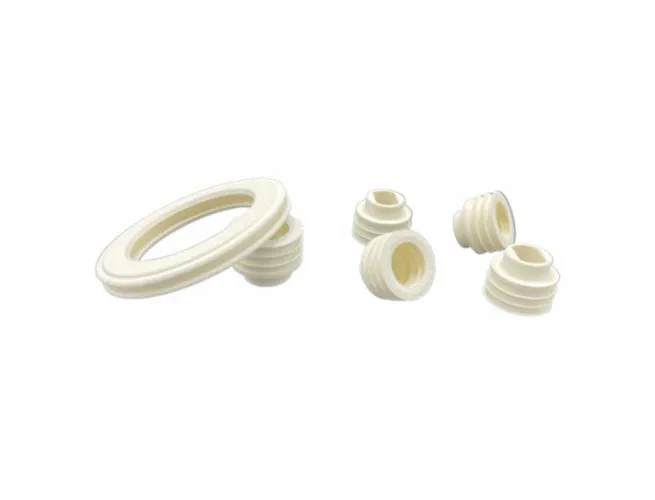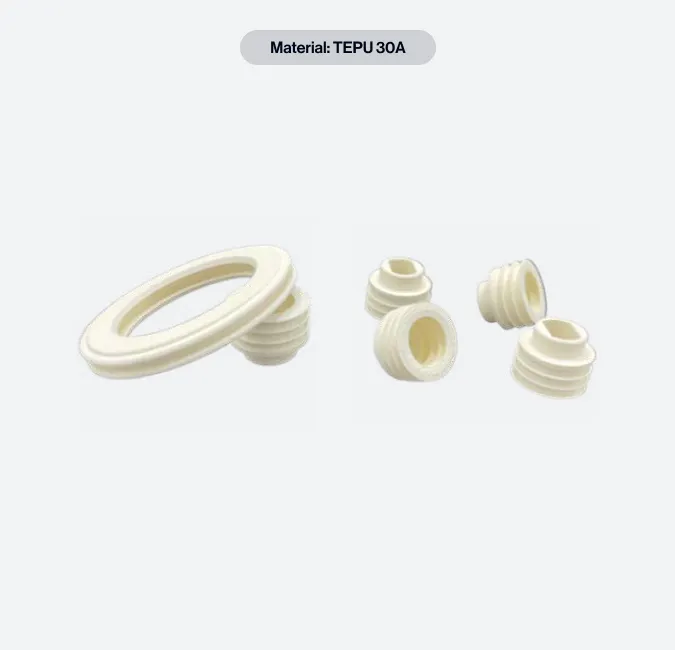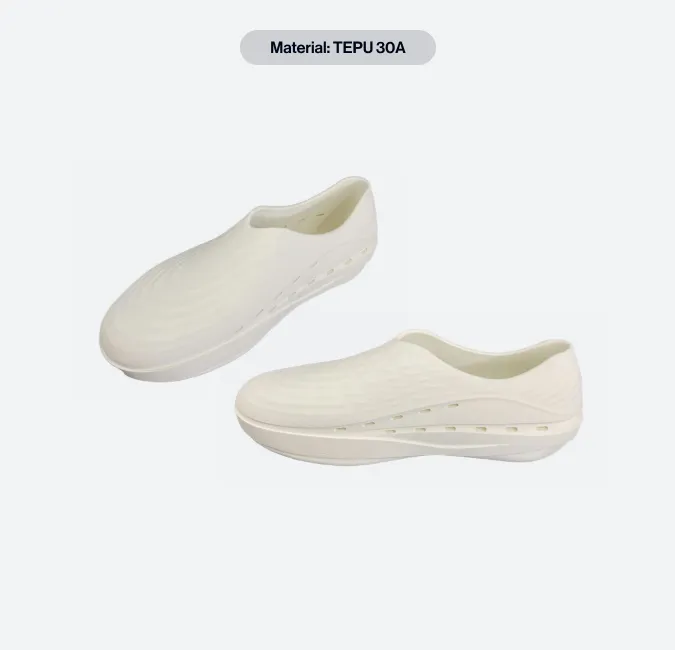
by Hazn abbas | Dec 13, 2024
CAST STUDY
Inkbit Technology Enabling a Watertight Solution for Hydrific, Through Makelab
Hydrific, backed by global leader LIXIL, is at the forefront of innovation in the dynamic field of water conservation and sustainability. Focused on making water conservation accessible and enjoyable, Hydrific launched of its first product, Droplet. Droplet is a Smart Home loT product that gives homeowners and tenants high-resolution water data and insights.
Challenge
Hydrific’s Prototyping Dilemma: Crafting Precise, Watertight Seals for the Innovative Droplet Device
The primary challenge faced by Hydrific was to develop seals and gaskets for the Droplet that were not only exact in dimensions but also ensured complete watertight integrity. Traditional 3D printing methods and materials could not meet these specific demands, posing a significant hurdle in the development process. The Hydrific team had previously experimented with silicone-like printing materials and other flexible SLA materials but found them too thick for their requirements. Soft tooling was another option, but it was slow and costly. Hydrific was looking for a faster, more costeffective solution to meet their high-quality standards.
Solution
Inkbit’s TEPU 30A Material Resolves Hydrific’s Prototyping Challenges
The breakthrough came with the discovery of Inkbit’s TEPU 30A material, a thin and flexible solution that met all the requirements for Hydrific’s prototype. This material enabled the creation of precise, cost-effective, and rapid prototypes essential for field testing. Makelab played a crucial role in this phase, providing their printing support and expertise, which was vital in effectively utilizing Inkbit’s innovative material.
“It is gamechanging to have something this thin, flexible, and functional. I didn’t know this was possible. I can imagine the incredible potential of this new material for testing asymmetrical and complex seal designs for various applications. The TEPU material and Vision Controlled Jetting technology can extend beyond seals and gaskets to applications like flexible hinges, over-molded parts, and even wearables.”
| Emilie Williams, Industrial Designer and co-founder of Hydrific
Key Takeaways
Inkbit and Makelab’s Collaboration Drives Success for Hydrific, Paving the Way for Future Innovations in Water Conservation
This successful partnership between Hydrific, Inkbit, and Makelab signifies a significant advancement in water conservation technology. Integrating Inkbit’s 3D printing technology and Makelab’s 3D printing services has facilitated the successful development of components for Hydrific’s Droplet and supports Hydrific’s significant strides in water conservation.

by Hazn abbas | Dec 13, 2024
CAST STUDY
Inkbit Technology Enabling Rapid Prototyping for STAND+ in Collaboration with Makelab.
STAND+, a leader in non-slip safety footwear, needed a more effective way to prototype their medicalgrade protective shoes. Traditional methods were proving inefficient, so they turned to Makelab, which utilized Inkbit’s Vision-Controlled Jetting (VCJ) Technology and TEPU™ 30A soft elastic material. This partnership allowed STAND+ to streamline their development process, reduce costs, and bring their innovative footwear to market more quickly.
Challenge
STAND+’s Prototyping Hurdle: Developing Functional, Wear-Testable Safety Footwear Prototypes
STAND+, an innovative non-slip safety shoe company, faced significant challenges in the prototyping phase of their medical-grade protective footwear. Founder Rob Gregg aimed to design comfortable and durable shoes for healthcare professionals, but the early prototypes were visually accurate yet functionally inadequate—solid and unwearable, making wear testing impossible. Traditional prototyping methods were slow, costly, and limited in their ability to iterate quickly, which hindered STAND+’s ability to bring their product to market efficiently
“The problem was that we could make something that looked like our shoe designs, but they were rock solid and we couldn’t wear test them. We had to move straight to opening production molds to figure out if we got it right.”
| Rob Gregg, Founder & CEO, STAND+
Solution
STAND+’s Prototyping Hurdle: Developing Functional, Wear-Testable Safety Footwear Prototypes
Inkbit’s Technology and TEPU™ Material
STAND+ sought a more efficient and cost-effective solution, leading them to collaborate with Makelab, who utilized Inkbit’s Vision-Controlled Jetting (VCJ) Technology and TEPU™ 30A – Soft Elastic material. This combination offered two major advancements:
1. Process Advancements
Inkbit’s VCJ Technology, enabled rapid prototyping with high precision. The integration of digital design tools allowed for quick modifications, and the ability to produce multiple iterations without expensive mold changes, reduced the prototyping timeline from months to about a week. This technology’s ability to print intricate multi-material parts with high accuracy was crucial in achieving functional prototypes that could be wear-tested.
2. Material Advancements
The introduction of Inkbit’s TEPU™ 30A soft elastic material provided the perfect balance of flexibility and durability, making it ideal for medical footwear. This material ensured that the prototypes were not only accurate in design but also functional, allowing STAND+ to conduct necessary wear tests. The use of TEPU™ 30A material significantly cut prototyping costs, enabling STAND+ to reallocate resources to other critical areas such as marketing and research.
Key Takeaways
Inkbit and Makelab’s Collaboration Drives STAND+’s Success, Enabling Rapid Innovation in Safety Footwear
The collaboration between Inkbit, Makelab, and STAND+ exemplifies how advanced 3D printing technology can transform product development processes. Inkbit’s VCJ Technology and TEPU™ 30A material, combined with Makelab’s production expertise, enabled STAND+ to overcome traditional manufacturing hurdles, bringing their innovative footwear to market faster and more cost-effectively. This partnership not only facilitated STAND+’s growth in the safety footwear industry but also highlights the broader potential of advanced 3D printing solutions to drive business growth and operational efficiency across various sectors.



